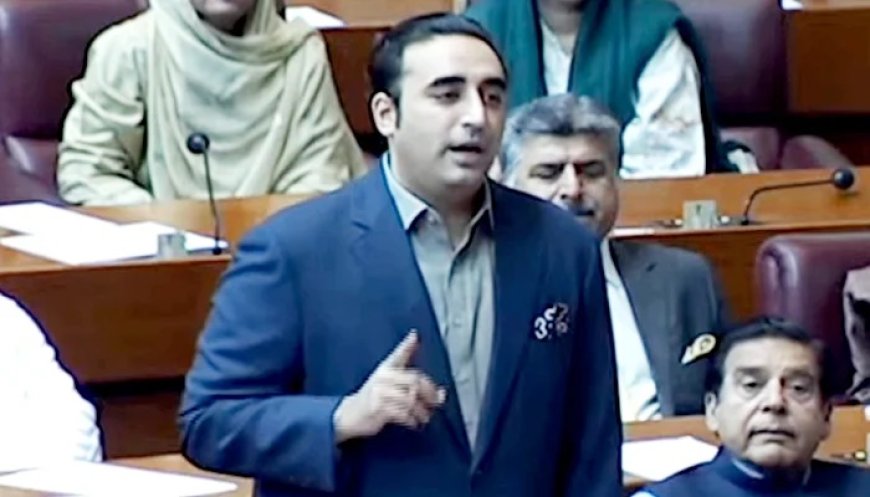'Budget Will Be for Babus, by Babus, of Babus Sans Political Input', Bilawal Emphasises in NA Speech

1.
Pakistan Peoples Party (PPP) Chairman Bilawal Bhutto-Zardari emphasized the necessity of incorporating political insights into the budget proposals for 2024-25 to ensure their effectiveness.
"In the absence of political input, the budget cannot fulfill its objectives. The relief intended for the people will be unattainable. The ground realities understood by politicians across the board are often overlooked by bureaucrats in Islamabad," he asserted during the National Assembly session.
He criticized the prevailing practice where budgets are crafted exclusively by bureaucrats, stating, "Without political input, the budget remains crafted by the 'babus', for the 'babus', and of the 'babus'. We aim to put an end to this tradition," he added.
The PPP, a key ally of the Pakistan Muslim League-Nawaz (PML-N), continued to express concerns over not being consulted on the federal budget for the upcoming fiscal year starting July 1.
Following multiple rounds of discussions, PPP conveyed its grievances to the Shehbaz Sharif-led party. Reports indicated that the PML-N had acceded to all demands from its primary ally.
During the NA session, Bilawal underscored that no politician would propose taxing essential items like milk or stationery in a country with a 40% stunting rate and where 26 million children are out of school—suggesting such measures would typically originate from bureaucrats.
Expressing optimism in Prime Minister Shehbaz Sharif's administration to navigate Pakistan through its challenges, he noted a slight reduction in inflation under the current government but lamented inadequate relief for the common people in terms of revenue.
Bilawal also highlighted the urgency of addressing climate change, stressing its critical impact on future generations. He cautioned that Pakistan would endure consequences due to climate change.
Moreover, Bilawal criticized the National Accountability Bureau (NAB), alleging its misuse for political purposes and advocating for its abolition. He argued that NAB's actions undermined political institutions and democracy.

















































